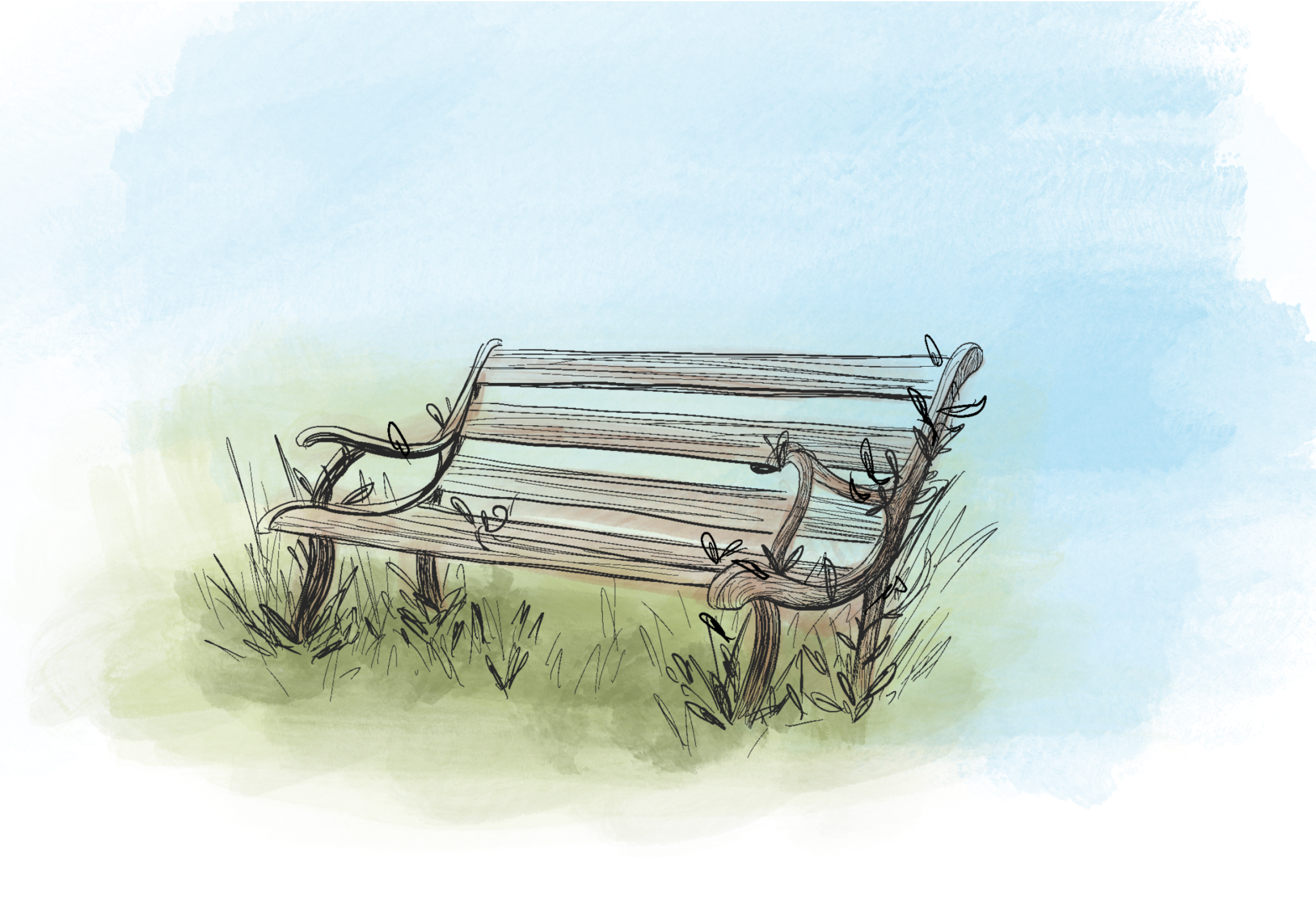
Emily Cai
Outside of Farnam Hall, tucked away in a shady corner, is the unremarkable bench where I once sat and watched my life at Yale come to an end. It was nearly two years ago when the pandemic grew into a global tragedy, and Yale was forced to close. It was that moment, on that old bench, as students hurried home, when I realized that everything had changed. What followed was a year of lockdown limbo. My life was frozen at the point when I left Yale. I spent that year within the confines of my home, dreaming of the day I could come back to that Old Campus bench. Half a year has passed since the late summer day when I made my quiet return. I have since tried to unpack the life I put away as a first-year, but instead, I have found myself with a life I cannot remember having.
I see the ghost of my first year every morning when I walk to Old Campus for class. It sits on that bench, glaring at me. It is angry that the world around it has changed, but it was naive to think that the world would have waited for it. The Yale I returned to is so different to the one I left behind. It exists in the shadow of an incredible loss. It is brimming with energy and unease, with pride and paranoia, with grief and love. I disappeared only to come back to faces I do not recognize, buildings I cannot remember existing and a sadness I do not understand. Yet, every day I look at that bench where my ghost sits and it is as if I was back where I started: young, clumsy and alone.
It is the loneliness of life in the aftermath of a global tragedy that I am most used to. I was alone first year and I was alone sophomore year, during the lockdown. It was a loneliness that stemmed from not fitting in, from watching the world move on without you. It is the loneliness of having a part of your past haunt the places you used to live back when you were younger. Now, I experience a different loneliness. One that makes me question if coming back to a life I can no longer recognize was worth it. It is a grief that comes with living in a pandemic. It is the solitude that comes with the realization that you were forced to grow up, to change against your will, to watch as everything you knew was taken from you. Holidays, birthday parties, friends — all lost to the unrelenting cruelty of the pandemic. It is this that one carries forever. It is what I have carried since I returned.
In the first months of my junior year, I carried the weight of the sad knowledge that the few friends I had made in my first year were long gone and graduated. I was no longer young. I stand and stare at the ghost of my first-year self, watching it mock me for aging. I soon realized, however, that I could start again. My old life of pre-pandemic first-year naivety was over. There was nothing I could do to somehow toss myself backwards across the stream of time in the blind hope that things would have been different. Instead, I realized that I could forge a new life. One where I no longer must grieve what I once had. So, I have become more involved in the things I love here. I savor every meal from the dining halls. I try to keep a diary. I fill my heart with the songs of new friendships. I do so even though my pre-pandemic past haunted me every step of the way. I do so because I knew better than to take this life for granted.
The apocalypse was never meant to be kind, but I was able to find the hope that lives in its aftermath. Now every morning when I pass that bench on the Old Campus, I find it empty. My ghost no longer sits there. It no longer waits for me. I have yet to sit on that bench again because I have nothing left to contemplate. I am done mourning a life I can never have again. Instead, I have learned, like everyone else has, how to live in this new normal. Nearly two years have passed since I first sat on that bench in shock and wept for what I lost. Yale is alive again, and so am I. I have picked up the pieces of what I left behind and I have begun anew. I have found joy in the life of things, and the ghost on that Old Campus bench is no more.







